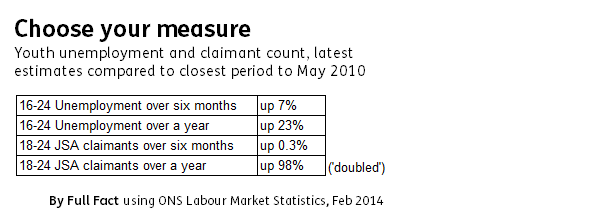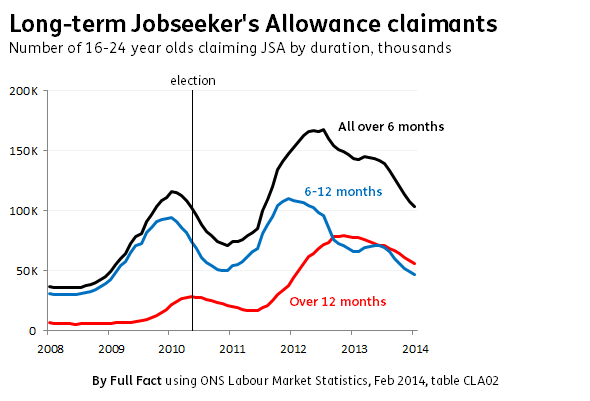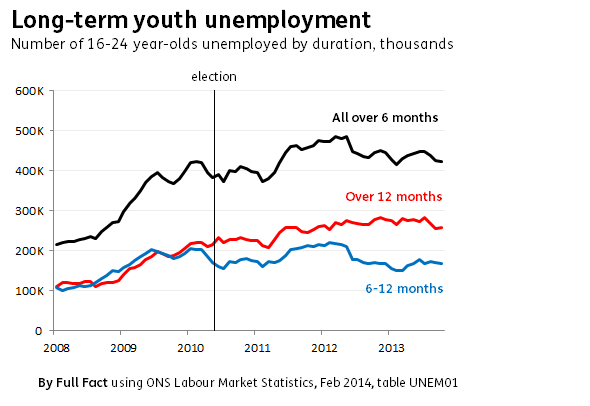Has long-term youth employment 'doubled' since the election?
Harriet Harman: "Long-term youth unemployment has doubled under the right hon. Gentleman's Government."
Nick Clegg: "Youth unemployment is lower now than when we came into office."
Prime Minister's Questions, 12 March 2014
Deputy Prime Minister Nick Clegg stood in for David Cameron at today's PMQs, and faced criticism from his Labour counterpart on the Coalition's unemployment record.
Youth unemployment is little different now than it was at the election. Fewer young people are unemployed now than were at the election, but the youth unemployment rate has risen slightly. Long-term youth unemployment isn't well defined and what has happened since 2010 depends on the measure you choose to look at.
Youth unemployment has changed very little
12,000 fewer young people (aged 16-24) are unemployed now that at the election, but that's a relatively small change. 929,000 young people were unemployed around the time of the election (April to June 2010 is the closest period in the figures). Now, 917,000 are.
But there are also fewer young people in the entire labour force (people in work, out of work and seeking work). As a proportion of young people in work or looking for it, the rate hasn't changed a great deal: 19.7% then and 19.9% now.
Long-term youth unemployment: choose your measure
Any of four different definitions of long-term youth unemployment tend to feature in debates: it can refer to the actual measure of unemployment lasting longer than six or 12 months, or it could refer to the number of young people claiming Jobseeker's Allowance (JSA) for longer than six or 12 months.
Using the claimant count has been a problematic measure in the past, as government-backed work schemes can artificially change the number of people claiming JSA by moving participants off the benefit. It's still arguable that the number of people claiming JSA at the time of the election may have been lower as a result of work schemes like these.
Up but coming down
Long-term youth unemployment has only doubled on one of the four measures: the number of young people claiming JSA for over a year has doubled from 28,000 to 56,000. If we include those on JSA for over six months however the change is only 3,000: from 102,800 to 103,100.
There's clear evidence from the JSA figures that long-term claimants are falling in number after peaking in 2012. In particular the number of young people claiming between six and 12 months has fallen since the election, which may well have a downward impact on the future numbers claiming for over a year.
Survey figures for youth unemployment show a similar rise since the election: 29,000 more have been out of work for over six months and 48,000 for more than a year. This isn't yet falling markedly.


